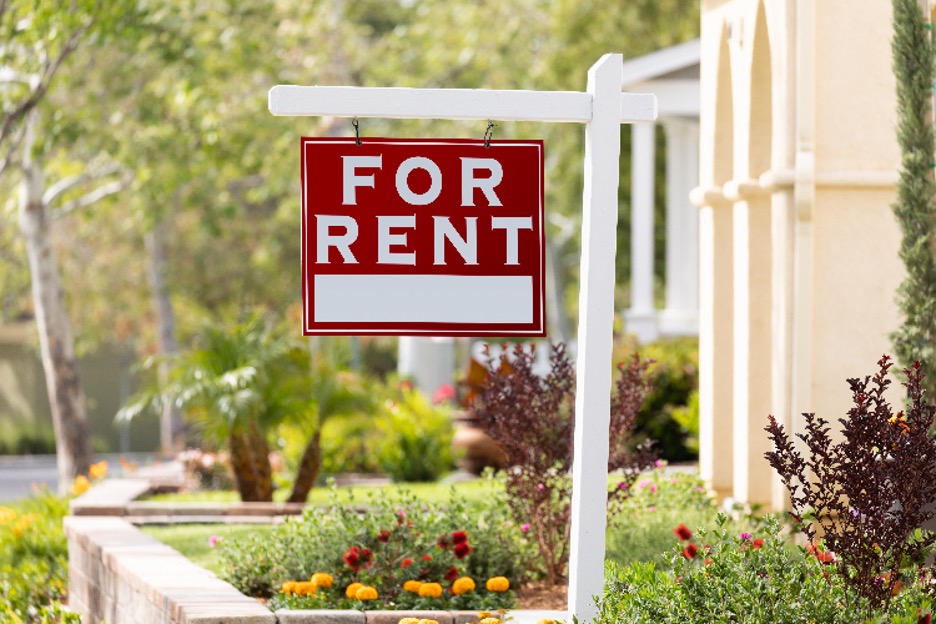Rental property repair costs can vary from one month to the next, creating a significant impact on net cash flow.
To help make budgeting for operating expenses easier, many investors purchase a home warranty for their rental property. Having a warranty can help make repair costs more predictable, keep tenants happier, and improve your bottom line.
What is a Rental Property Home Warranty?
A home warranty for a rental property is similar to a warranty people purchase for their own home. Rental property home warranty service contracts cover the failure of appliances and systems such as refrigerators and stoves, heating and air conditioning units, and electrical and plumbing systems.
One of the potential advantages of having a home warranty for a rental property is that the warranty makes budgeting for repairs more predictable.
When repair costs rise and fall from one month to the next, cash flow goes up and down as well. By having a rental property home warranty, the cost of the annual warranty premium can be evenly spread across twelve months.
In most cases, the only additional expense a landlord would pay is the deductible each time a repair claim is made under the home warranty.

Home Warranty vs. Homeowners Insurance
Some real estate investors wonder why they should get a rental property home warranty when they already have homeowners insurance. While both types of policies have to do with your home, the coverage provided by a warranty and insurance is different.
A good way to think about the difference between a home warranty and homeowners insurance is by using your car as an example.
If you’re in an accident and there is structural damage to your car – such as a dented fender or broken glass – insurance covers the repair and replacement. On the other hand, if your engine malfunctions or your front end goes out of alignment, the warranty will normally cover these operating systems in your car.
A home warranty and homeowners insurance work in a similar way.
Homeowners insurance provides coverage for structural items in your home such as the foundation, roof, walls and windows. If your home has the misfortune of being hit by a major hail storm and the roof needs to be replaced, homeowners insurance will normally pay for any needed roof repairs or an entire new roof.
By comparison, a rental property home warranty covers the moving parts in the home. If the air conditioning compressor goes out, the refrigerator stops cooling, or an electrical switch begins shorting out, a rental property home warranty normally covers these issues.
Is Getting a Home Warranty on a Rental Property a Good Idea?
The average cost of a basic home warranty ranges from $350 to $600 per year, with extended coverages for items such as a built-in microwave or ceiling fans costing adding to the cost of a home warranty. Service fees paid per repair average around $75.
So, if you have one home warranty claim per month the total cost of getting a home warranty (monthly premium plus service fee) would be about $125 per month.
To understand if getting a home warranty for a rental property is a good idea, you’ll need to do a little number crunching and compare your repair expenses with and without a home warranty to understand your break-even point.
If you’re investing in a rental property listed on the Roofstock Marketplace that has a tenant already in place, the seller will typically provide you with an annual profit and loss statement (P&L) for the home. The P&L will itemize income and expenses for each month, so you’ll have a pretty good idea of what the average repair expenses have been for the property.
Or, if you currently own a rental property and are using a free tool like Stessa to automatically track the income and expenses, simply run a monthly or year-to-date income statement to see what your actual repair costs are averaging. Stessa allows you to link your rental property to your bank accounts, making it extremely easy to track rental property performance on both a property and portfolio level.
Keep in mind that rental property expenses (and sometimes rental income) don’t always go in a straight line. There will be some months when repair costs are higher than others, such as an air conditioning system needing more repairs in the middle of summer. In other months, repair expenses may be much lower than budgeted for.
After you’ve compiled your actual repair costs, compare them to the cost of having a home warranty on your rental property to learn if buying a warranty makes good business sense.
When you do this analysis, be sure to take into account how old each item is that would be covered by the home warranty and the estimated remaining useful life.
Some warranties will replace a covered item if it breaks, and charge only the regular service fee. Other home warranty companies put a cap on the annual reimbursement rate for a specific system or appliance, which means you might have to pay for any amount not covered by the rental property home warranty.

Typical Items Covered in a Rental Property Home Warranty
The National Home Service Contract Association (NHSCA) is an organization that represents the nation’s premier home service contract providers. According to the NHSCA, the systems and appliances generally covered by a home warranty include:
Mechanical systems
- Interior Plumbing
- Heating System
- Electrical System
- Water Heater
- Ductwork
Appliances
- Dishwasher
- Oven/Range/Cook-top
- Garbage Disposal
- Garage Door Opener
Optional coverage
- Air Conditioning (may be found as an option)
- Refrigerator (may be found as an option)
- Washer/Dryer (may be found as an option)
- Pool Equipment (optional)
- Spa Equipment (optional)

Pros and Cons of a Home Warranty for Rental Property
Here are some of the general pros and cons of getting a home warranty for your rental property:
Pros of a Rental Property Home Warranty
- Easier to budget for repairs and replacement.
- Good selling point when interviewing prospective tenants.
- Home warranty companies contract with the best local contractors to make repairs.
- Cost of a rental property home warranty and service calls are tax-deductible.
Cons of a Rental Property Home Warranty
- Premiums for a home warranty are still paid even if repairs are not made.
- Some items may not be covered by the warranty without an additional policy upgrade cost.
- Home warranty companies may place a dollar limit per repair.
- Risk of a repair claim being denied due to the tenant misusing an appliance or item.
When weighing the potential benefits of a home warranty, be sure to thoroughly read the warranty documentation and ask the warranty company representative questions if you’re not sure about something.
Not all home warranty policies offer the same amount of coverage for the price, and plans may also vary based on the type of rental property you own and the city in which the home is located.

Best Home Warranty Companies for Rental Properties
These are some of the top home warranty providers to consider, according to research done by This Old House:
American Home Shield
American Home Shield (AHS) is rated as the best overall home warranty company for rental property. Premiums range from $24.99 to $64.99 per month depending on the coverage plan and service fee.
Choice Home Warranty
With offices in 48 states and a 12-year track record of success, Choice Home Warranty is rated as having the best customer service for rental property home warranties. Choice home warranty plans cost between $36.17 and $43.85 per month, while service fees are between $60 and $85.
First American Home Warranty
First American Home Warranty is rated as offering the best value for rental property owners looking for a home warranty. The company offers a First Class Upgrade service for rental property owners, covering systems or appliances that were improperly installed or maintained by a previous owner or tenant.
Liberty Home Guard
Although the company is fairly new in the home warranty business, Liberty Home Guard has a high rating from the Better Business Bureau and a low service fee. The cost for home warranty plans from Liberty Home Guard ranges from $39.99 to $59.99 per month, with a service fee of $60.
Tips for Choosing a Rental Property Home Warranty
It’s important to shop around for a rental property home warranty the same way that you would research different mortgage options or a local property management company.
Here are some things to consider when choosing a rental property home warranty company:
- Have the warranty company provide a breakdown of all package prices. Home warranties generally range from between $300 to $600, plus extra costs for optional coverage.
- Understand what the service call fee is per repair. Fees can cost from $30 to $125 depending on the home warranty company, contractor, and type of repair needed.
- Ask about à la carte rental property home warranty pricing. Some landlords opt for a home warranty that covers only major mechanical items such as electrical, plumbing, and HVAC. Other rental property owners look for a home warranty that covers everything.
Wrapping Up
A home warranty for rental property can make it easier for investors to budget for repairs and avoid getting caught off guard if an expensive item needs to be fixed or even replaced. When shopping around for a rental property home warranty, be sure to understand how the premium on each warranty coverage package works, the service fee charged for each visit, and any dollar limit per repair.









